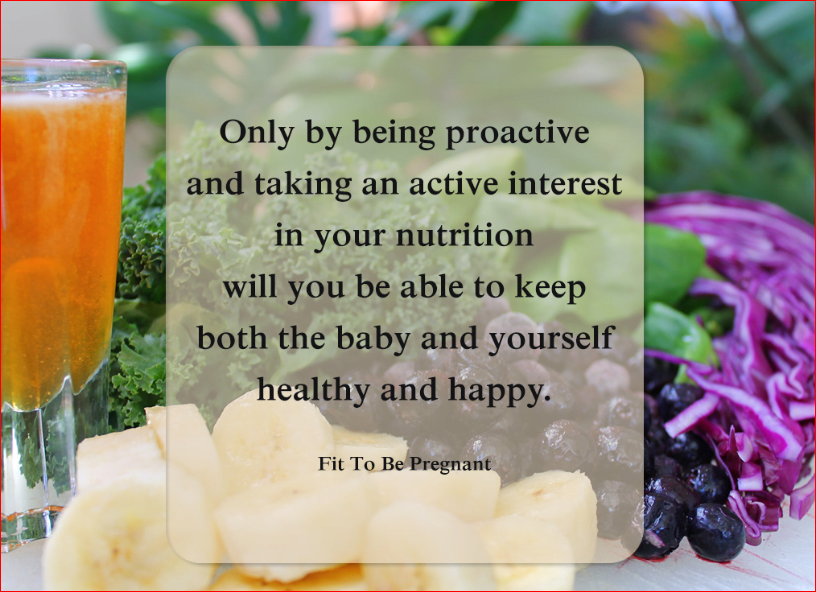Supplements Before And During Pregnancy-Part 2
Supplements Before And During Pregnancy- Part 2. Besides food, your body will also require supplements. It is extremely difficult to get all the necessary nutrients, vitamins and minerals that your body needs from food alone. Your diet will have to be varied and your knowledge of nutrition will have to be good to get a completely balanced diet with no deficiencies.
Most women just do not have the time to watch their diet like a hawk and note the different vitamins they’re getting.
By consuming supplements, you’ll be able to pick up the slack from a diet that is deficient in a few vitamins and minerals. Some basic knowledge would be very helpful though. When you understand what you’re eating, how much you should eat, why you’re eating it… pregnancy nutrition will be much easier to get right.
There is a list further down with 14 important supplements you should consume.
Do note that the Recommended Daily Allowances are just a rough estimate. Speak to your doctor and tailor your supplement intake to best suit your needs. Another point you should be aware of is that there are negative consequences of overdosing on specific vitamins. This usually occurs from eating foods that contain a certain vitamin and consuming supplements which contain that vitamin too.
Now there is a surplus in your body.
This is why it’s important to tell your doctor during your prenatal appointments what you’re eating and what vitamins, medications and supplements (including herbal) you’re taking too. This will help them to assess your diet. Do not leave any details out regardless of how insignificant you may believe them to be.
These are the Supplements that you will need.
1. Vitamin A
Vitamin A is crucial for the development of the baby’s bones, teeth, heart, ears, eyes and immune system. Aim to consume at least 770 micrograms (or 2565 IU, as it is labeled on nutritional labels) of Vitamin A per day. This will double when nursing to 1300 micrograms (4,330 IU). Overdosing on Vitamin A can cause birth defects and liver toxicity.
Do NOT consume more than 3000 mcg (10,000 IU) per day.
Vitamin A can be found in liver, carrots, sweet potatoes, kale spinach collard greens, cantaloupe, eggs, mangos and peas.
2. Vitamin B6
This vitamin which is also known as Pyridoxine helps with the development of the baby’s brain and nervous system. It also encourages the growth of new red blood cells in both mom and baby. Some women report that B6 has helped to alleviate their morning sickness. Pregnant women should consume at least 1.9 mg per day of Vitamin B6. That amount rises slightly when nursing to 2.0 mg per day. Vitamin B6 can be found in fortified cereals, as well as bananas, baked potatoes, watermelon, chick peas and chicken breast.
3. Vitamin B12
Vitamin B12 works together with folic acid to help aid in the production of healthy red blood cells and promotes development of a healthy brain and nervous system in the baby. The body usually has sufficient stores of B12 and it’s very rare to have a B12 deficiency. Pregnant women should consume at least 2.6 mcg (104 IU) of B12per day, nursing mothers 2.8 mcg (112 IU). It can found in red meat, poultry, fish, shellfish, eggs and dairy foods.
4. Vitamin C
Probably the most famous of all the vitamins, Vitamin C will help both mommy and baby to absorb iron and build a healthy immune system. Other than that, it will hold the cells together and help the body to build tissue. Pregnant women should consume at least 80-85 mg of Vitamin C per day, nursing mothers no less than 120 mg per day Vitamin C can be found in citrus fruits, raspberries, bell peppers, green beans, strawberries, papaya, potatoes, broccoli and tomatoes, as well as in many cough drops and other supplements.
5. Calcium
This vitamin is crucial for building your baby’s bones and promotes optimal functioning of the baby’s brain and heart. Pregnant women should consume at least 1200 mg of calcium a day, nursing mothers 1000 mg per day. Calcium can be found in dairy products, such as milk, cheese, yoghurt and, to a lesser extent, ice cream, as well as fortified juices, butters and cereals, spinach, broccoli, okra, sweet potatoes, lentils, tofu, Chinese cabbage, kale and broccoli. It is also widely available in supplement form.
6. Vitamin D
Vitamin D aids in the absorption of calcium. This will lead to healthy bones in both mother and child. Women who are pregnant or nursing should consume at least 2000 IU of Vitamin D per day. Babies usually require more Vitamin D than adults. Your doctor may recommend a Vitamin D supplement and baby formula is also fortified with Vitamin D.
Vitamin D is rarely found in sufficient amounts in ordinary foods.
It can, however, be found in milk (most milk is fortified) as well as fortified cereals, eggs and fatty fish like salmon, catfish and mackerel. Vitamin D is also found in sunshine, so women and children found to have a mild Vitamin D deficiency may be told to spend more time in the sun.
7. Vitamin E
Vitamin E helps the baby’s body to form and use its muscles and red blood cells. This vitamin is crucial for building your baby’s bones and promotes optimal functioning of the baby’s brain and heart. Pregnant women should consume at least 1200 mg of calcium a day, nursing mothers 1000 mg per day. Calcium can be found in dairy products, such as milk, cheese, yoghurt and, to a lesser extent, ice cream, as well as fortified juices, butters and cereals, spinach, broccoli, okra, sweet potatoes, lentils, tofu, Chinese cabbage, kale and broccoli. It is also widely available in supplement form.
8. Folic Acid
This is one of the most important vitamins during pregnancy and is vital for the development of a healthy baby. The body uses Folic Acid for the replication of DNA, cell growth and tissue formation. Folic acid deficiencies result in many nasty birth defects such as spina bifida (a condition in which the spinal cord does not form completely), anencephaly (underdevelopment of the brain) and encephalocele (a condition in which brain tissue protrudes out to the skin from an abnormal opening in the skull).
All of these conditions occur during the first 28 days of fetal development, usually before the mother even knows she’s pregnant.
It’s imperative that you get enough folic acid in your diet prior to getting pregnant. Pregnant woman should consume at least 0.6-0.8 mg of Folic Acid per day. Folic Acid can be found in oranges, orange juice, strawberries, leafy vegetables, spinach, beets, broccoli, cauliflower, peas, pasta, beans, nuts and sunflower seeds, as well as in supplements and fortified cereals.
9. Iron
This is another important vitamin that helps with cell development, blood cell formation and placenta formation. Women who are pregnant should have at least 27 mg of iron per day. Iron can be found in red meat and poultry, legumes, vegetables, some grains and fortified cereals.
10. Niacin
This is known as Vitamin B3 and helps to keep the mother’s digestive system functioning optimally as well as gives the baby energy to develop well. Pregnant women should have an intake of at least 18 mg of Niacin per day.
Niacin can be found in foods that are high in protein, such as eggs, meats, fish and peanuts, as well as whole grains, bread products, fortified cereals and milk.
11. Protein
Protein is the building block of the body’s cells. All growth and development of the body requires protein and protein is especially important in the second and third trimester, when both Mom and baby are growing the fastest. Pregnant and nursing women should consume at least 70g of protein per day, which is about 25g more than the average women needs before pregnancy. Protein can be found naturally in beans, poultry, red meats, fish, shellfish, eggs, milk, cheese, tofu and yogurt. It is also available in supplements, fortified cereals and protein bars.
12. Riboflavin
This is also known as Vitamin B2. It gives the body energy and helps in the development of the baby’s bones, muscles and nervous system. Pregnant women should consume at least 1.4 mg of Riboflavin per day, nursing mothers 1.6 mg. Riboflavin can be found in whole grains, dairy products, red meat, pork and poultry, fish, fortified cereals and eggs.
13. Thiamin
Thiamin is Vitamin B1 assists in the development of the baby’s organs and central nervous system. Pregnant women and nursing mothers should consume at least 1.4 mg of Thiamin a day. Thiamin can be found in whole grain foods, pork, fortified cereals, wheat germ and eggs.
14. Zinc
Zinc is vital for the growth of your fetus because it aids in cell division, the primary process in the growth of baby’s tiny tissues and organs. It also helps Mom and baby to produce insulin and other enzymes. Pregnant women should have an intake of at least 11-12 mg of Zinc per day. Zinc can be found naturally in red meats, poultry, beans, nuts, grains, oysters and dairy products, as well as fortified cereals and supplements.
Table-These are the supplements that you will need.
| Vitamin | Food Source |
| Vitamin A | Liver, carrots, sweet potatoes, kale, spinach, collard greens, cantaloupe, eggs, mangos and peas |
| Vitamin B6 | Fortified cereals, bananas, baked potatoes, watermelon, chickpeas and chicken breast |
| Vitamin B12 | Red meat, poultry, fish, shellfish, eggs and dairy foods |
| Vitamin C | Citrus fruits, raspberries, bell peppers, green beans, strawberries, papaya, potatoes, broccoli and tomatoes |
| Calcium | Dairy products, fortified juices, fortified butters and fortified cereals, spinach, broccoli, okra, sweet potatoes, lentils, tofu, Chinese cabbage, kale and broccoli. |
| Vitamin D | Milk, fortified cereals, eggs and fatty fish (salmon, catfish and mackerel) |
| Vitamin E | Vegetable oil, wheat germ, nuts, spinach and fortified cereal |
| Folic Acid | Oranges, orange juice, strawberries, leafy vegetables, spinach, beets, broccoli, cauliflower, peas, pasta, beans, nuts and sunflower seeds |
| Iron | Red meat and poultry, legumes, vegetables, some grains and fortified cereals |
| Niacin (Vitamin B3) | Eggs, meats, fish, peanuts, whole grains, bread products, fortified cereals and milk |
| Protein | Beans, poultry, red meat, fish, shellfish, eggs, milk, cheese, tofu, yogurt, fortified cereal and protein bars |
| Riboflavin (Vitamin B2) | Whole grains, dairy products, red meat, pork, poultry, fish, fortified cereals and eggs |
| Thiamin (Vitamin B1) | Whole grains, pork, fortified cereals, wheat germ and eggs |
| Zinc | Red meats, poultry, beans, nuts, grains, oysters, dairy products and fortified cereals |






